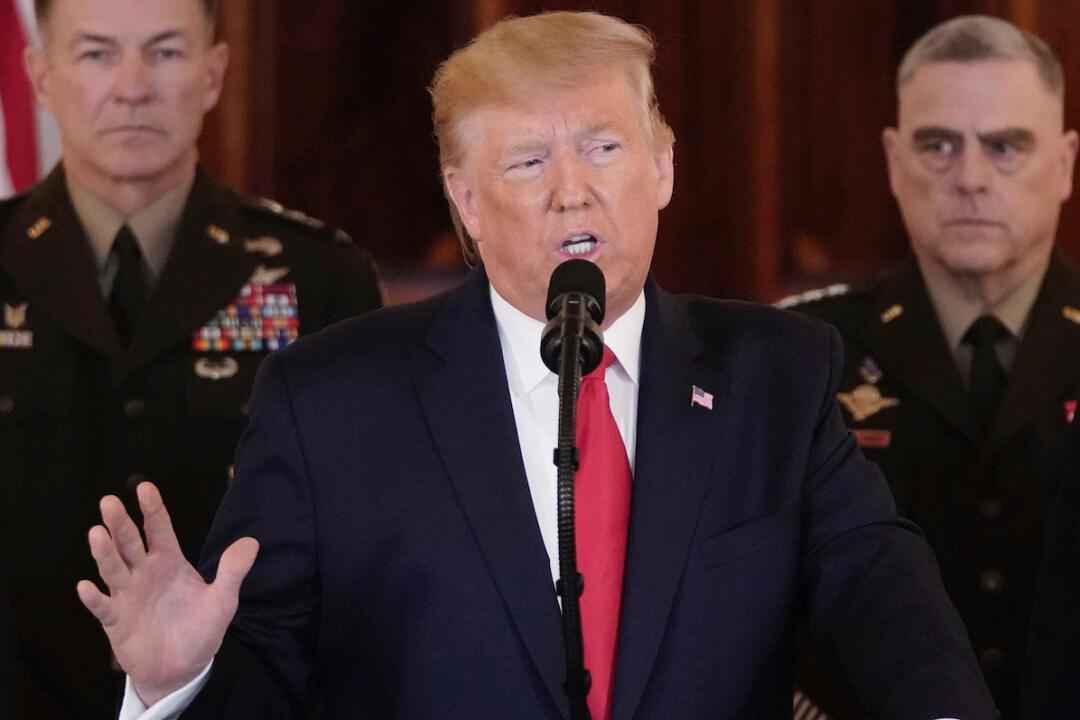President Donald Trump said Iran had targeted four American embassies before the killing of Iranian Gen. Qassem Soleimani a week ago—the clearest details yet on the intelligence U.S. officials had gathered ahead of the airstrike in Baghdad.
“We will tell you, probably it was going to be the embassy in Baghdad,” Trump said in an interview with Fox News’s Laura Ingraham on Friday, adding, “I can reveal that I think it would’ve been four embassies.” On Thursday, he told reporters Iran was ”looking to blow up” the U.S. Embassy in Iraq.





